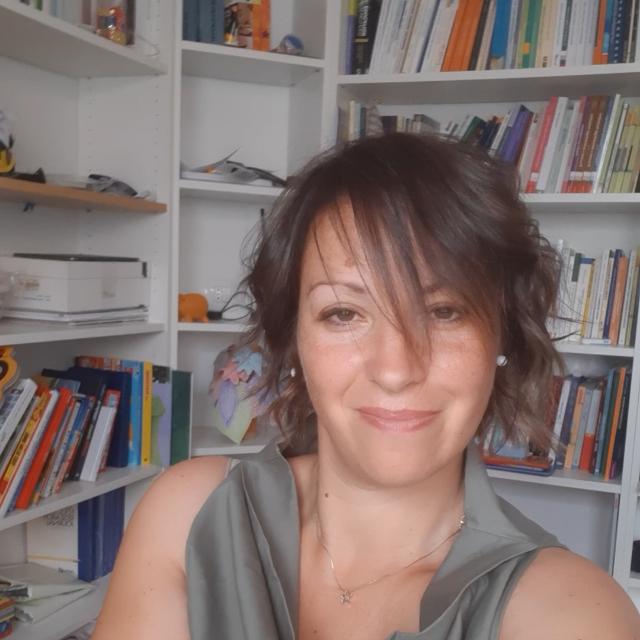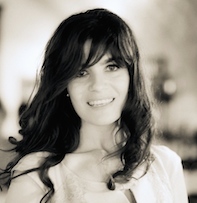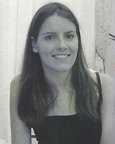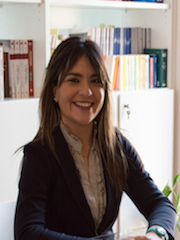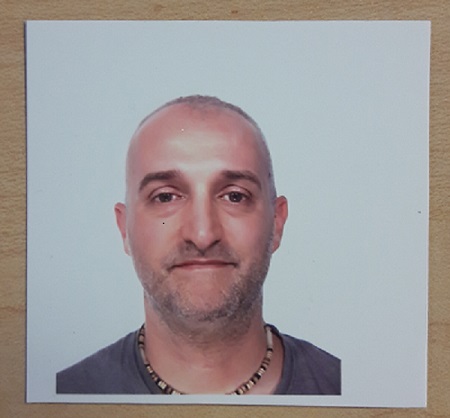Studying at the University of Verona
Here you can find information on the organisational aspects of the Programme, lecture timetables, learning activities and useful contact details for your time at the University, from enrolment to graduation.
Academic calendar
The academic calendar shows the deadlines and scheduled events that are relevant to students, teaching and technical-administrative staff of the University. Public holidays and University closures are also indicated. The academic year normally begins on 1 October each year and ends on 30 September of the following year.
Course calendar
The Academic Calendar sets out the degree programme lecture and exam timetables, as well as the relevant university closure dates..
| Period | From | To |
|---|---|---|
| Sem. 1A | Sep 27, 2021 | Nov 6, 2021 |
| Sem. 1B | Nov 15, 2021 | Jan 12, 2022 |
| Sem. 2A | Feb 14, 2022 | Mar 26, 2022 |
| Sem. 2B | Apr 4, 2022 | Jun 4, 2022 |
| Session | From | To |
|---|---|---|
| Sessione Invernale | Jan 10, 2022 | Feb 12, 2022 |
| Sessione estiva | Jun 6, 2022 | Jul 23, 2022 |
| Sessione autunnale | Aug 29, 2022 | Sep 24, 2022 |
| Session | From | To |
|---|---|---|
| Sessione estiva | Jul 11, 2022 | Jul 16, 2022 |
| Sessione autunnale | Nov 7, 2022 | Nov 12, 2022 |
| Period | From | To |
|---|---|---|
| FESTIVITA' OGNISSANTI | Nov 1, 2021 | Nov 1, 2021 |
| Vacanze di Natale | Dec 25, 2021 | Jan 6, 2022 |
| VACANZE DI PASQUA | Apr 15, 2022 | Apr 19, 2022 |
| Festa della Liberazione | Apr 25, 2022 | Apr 25, 2022 |
| FESTA DEL LAVORO | May 1, 2022 | May 1, 2022 |
| Festività Santo Patrono di Verona | May 21, 2022 | May 21, 2022 |
Exam calendar
Exam dates and rounds are managed by the relevant Humanistic Studies Teaching and Student Services Unit.
To view all the exam sessions available, please use the Exam dashboard on ESSE3.
If you forgot your login details or have problems logging in, please contact the relevant IT HelpDesk, or check the login details recovery web page.
Should you have any doubts or questions, please check the Enrollment FAQs
Academic staff
 giorgia.decarli@univr.it
giorgia.decarli@univr.it
 emily.diquigiovanni@univr.it
emily.diquigiovanni@univr.it
 giacomo.mormino@univr.it
giacomo.mormino@univr.it
 luciano.pasqualotto@univr.it
luciano.pasqualotto@univr.it
 matteo.pressi@univr.it
matteo.pressi@univr.it
 antonella.salvan@univr.it
antonella.salvan@univr.it
 carlo.soregotti@univr.it
carlo.soregotti@univr.it
 mariasilvia.varalta@univr.it
mariasilvia.varalta@univr.it
 giorgio.zoccatelli@univr.it
giorgio.zoccatelli@univr.it
Study Plan
The Study Plan includes all modules, teaching and learning activities that each student will need to undertake during their time at the University.
Please select your Study Plan based on your enrollment year.
1° Year
| Modules | Credits | TAF | SSD |
|---|
2° Year activated in the A.Y. 2022/2023
| Modules | Credits | TAF | SSD |
|---|
3° Year activated in the A.Y. 2023/2024
| Modules | Credits | TAF | SSD |
|---|
1 MODULE BETWEEN THE FOLLOWING| Modules | Credits | TAF | SSD |
|---|
| Modules | Credits | TAF | SSD |
|---|
| Modules | Credits | TAF | SSD |
|---|
1 MODULE BETWEEN THE FOLLOWINGLegend | Type of training activity (TTA)
TAF (Type of Educational Activity) All courses and activities are classified into different types of educational activities, indicated by a letter.
Clinical psychology (2023/2024)
Teaching code
4S009133
Teacher
Coordinator
Credits
6
Language
Italian
Scientific Disciplinary Sector (SSD)
M-PSI/08 - CLINICAL PSYCHOLOGY
Period
Sem. 2A dal Feb 19, 2024 al Mar 29, 2024.
Courses Single
Authorized
Learning objectives
Knowledge and understanding - Knowledge and understanding of the determinants of bio-psycho-social well being (with particular regard to the main social problems often faced by social workers) Ability to apply knowledge and understanding - Ability to place users problems in the wider social dynamics - Ability to recognize the main causes of people needs and distinguish among their social, familial and personal roots LEARNING OUTCOMES At the end of the course, students will have acquired: knowledge of the main theoretical approach in clinic psychology; knowledge and understanding of the key concepts of psychopathology and of those elements characterizing the main psychological diseases; skills regarding relational and communicative tools of the helping relationship; skills concerning the use of clinic psychology language.
Prerequisites and basic notions
There are no specific prerequisites
Program
Evolution and definition of clinical psychology
Methodological challenges in clinical psychology and the analysis of the application
Instruments of clinical psychology
Verbal and non-verbal communication, instruments for effective communication, emotion and difficult interactions
Elements of psycho-diagnosis in developmental age
Elements of psycho-diagnosis in adult age
Description of the psychological and psychotherapeutic approaches in clinical psychology:
Psychoanalysis
Behaviourism
Cognitive therapy
Humanistic approach
Systemic approach
Bibliography
Didactic methods
Face-to-face lesson
Learning assessment procedures
Written exam lasting 1 hour, consisting of multiple choice questions and 1 or 2 open questions. Exam methods do not differ between attending and non-attending students. ERASMUS students are requested to contact the teacher at the beginning of the course to agree on any alternative exam methods.
Evaluation criteria
The written test focuses on the contents of the entire program, which includes the textbook and the slides presented in class. The assessment will focus on the student's knowledge of the contents learned during the course, on the ability to make connections between them and to bring what has been learned into the context of their future profession.
Criteria for the composition of the final grade
The final grade is made up of the sum of the scores obtained by the student by responding appropriately to these posts. There are no penalties for wrong answers.
Exam language
Italiano
Type D and Type F activities
I crediti liberi a scelta dello studente (ambito “D”) sono 12 ed hanno lo scopo di offrire allo studente la possibilità di personalizzare il proprio percorso formativo permettendo di approfondire uno o più argomenti di particolare interesse legati al proprio percorso accademico.
Per garantire questo fine, si invitano gli studenti a rispettare le seguenti indicazioni per il completamento di tale ambito:
- almeno un’attività formativa erogata come esame universitario (con relativo voto in trentesimi); si consigliano gli esami di Filosofia politica – Prof.ssa Ilaria Possenti, CdS in Scienze della comunicazione, Diritto del lavoro – Prof.ssa Laura Calafà, CdS in Scienze psicologiche per la formazione, Diritto penale – prof. Lorenzo Piccotti, Laurea magistrale a ciclo unico in Giurisprudenza e Legislazione minorile – Prof.ssa Silvana Strano Ligato, Laurea magistrale a ciclo unico in Giurisprudenza;
- massimo 6 cfu relativi a competenze linguistiche (oltre a quelli previsti dal PdS);
- massimo 6 cfu relativi a competenze informatiche (oltre a quelli previsti dal PdS) - ECDL e i corsi di base non saranno più riconosciuti;
- massimo 4 cfu di tirocinio, (oltre a quelli previsti dal PdS);
- massimo 6 cfu di attività laboratoriale/esercitazioni (compresi quelli previsti nei PdS per l’ambito) di regola viene riconosciuto 1 cfu ogni 25 ore di attività;
- massimo 6 cfu di attività seminariale/convegni/cicli di incontri/formative in genere (sia accreditata dal Dipartimento di Scienze Umane che extrauniversitaria) – di regola viene riconosciuto 1 cfu ogni 8 ore di partecipazione e/o 2 giornate salvo diversamente deliberato;
- non vengono valutate attività svolte in Erasmus non inserite nei Learning Agreement.
COMPETENZE TRASVERSALI
Scopri i percorsi formativi promossi dal Teaching and learning centre dell'Ateneo, destinati agli studenti iscritti ai corsi di laurea, volti alla promozione delle competenze trasversali:
https://talc.univr.it/it/competenze-trasversali
| years | Modules | TAF | Teacher |
|---|---|---|---|
| 2° 3° | What paradigms beyond the pandemic? | D |
Paola Dal Toso
(Coordinator)
|
| 2° 3° | The contagion and the cure. The world after the virus | D |
Carlo Chiurco
(Coordinator)
|
| 2° 3° | The ethics and aesthetics of the image | D |
Gianluca Solla
(Coordinator)
|
| years | Modules | TAF | Teacher |
|---|---|---|---|
| 2° 3° | What paradigms beyond the pandemic? | D |
Paola Dal Toso
(Coordinator)
|
| 2° 3° | The contagion and the cure. The world after the virus | D |
Carlo Chiurco
(Coordinator)
|
| 2° 3° | Laboratorio “Calendario di Memoria Civile – Giornata della Memoria” | D |
Olivia Guaraldo
(Coordinator)
|
| years | Modules | TAF | Teacher |
|---|---|---|---|
| 2° 3° | Introduction to robotics for humanities students | D |
Paolo Fiorini
(Coordinator)
|
| years | Modules | TAF | Teacher |
|---|---|---|---|
| 2° 3° | "Common world. 2022 Arendt Seminars | D |
Ilaria Possenti
(Coordinator)
|
| 2° 3° | Restorative Justice | D |
Cristina Lonardi
(Coordinator)
|
| 2° 3° | Group Psychology and the Analysis of the Ego, a hundred years later: social bond and new forms of subjectivation. | D |
Matteo Bonazzi
(Coordinator)
|
| 2° 3° | The contagion and the cure. The world after the virus | D |
Carlo Chiurco
(Coordinator)
|
| 2° 3° | Gnoseology and Metaphysics Workshop | D |
Davide Poggi
(Coordinator)
|
| years | Modules | TAF | Teacher |
|---|---|---|---|
| 2° 3° | "Common world. 2022 Arendt Seminars | D |
Ilaria Possenti
(Coordinator)
|
| 2° 3° | Partecipated justice and reforms. The settlement of conflicts with people and for people | D |
Cristina Lonardi
(Coordinator)
|
| 2° 3° | Gnoseology and Metaphysics Workshop | D |
Davide Poggi
(Coordinator)
|
Career prospects
Module/Programme news
News for students
There you will find information, resources and services useful during your time at the University (Student’s exam record, your study plan on ESSE3, Distance Learning courses, university email account, office forms, administrative procedures, etc.). You can log into MyUnivr with your GIA login details: only in this way will you be able to receive notification of all the notices from your teachers and your secretariat via email and soon also via the Univr app.
Student mentoring
Linguistic training CLA
Gestione carriere
Practical information for students
Documents
| Title | Info File |
|---|---|
|
|
pdf, it, 325 KB, 02/05/23 |
|
|
pdf, it, 212 KB, 02/05/23 |
|
|
pdf, it, 131 KB, 02/05/23 |
Graduation
Documents
| Title | Info File |
|---|---|
|
|
pdf, it, 99 KB, 13/10/23 |
|
|
pdf, it, 101 KB, 10/04/24 |
List of theses and work experience proposals
| theses proposals | Research area |
|---|---|
| Proposta tesi | Various topics |
Assistente Sociale
Comune e Università di Verona collaborano per la formazione alla professione di assistente sociale.
Professione Assistente Sociale
Pagina aggiornata il 18/1/2022
Stage e Tirocini
Le attività̀ di tirocinio degli studenti si svolgono presso strutture esterne, convenzionate con l’Università degli Studi di Verona ai sensi delle vigenti disposizioni in materia. Nelle strutture esterne gli studenti svolgono le attività di tirocinio sotto la responsabilità di un assistente sociale (Tutor-supervisore), appartenente a dette strutture, coordinato a sua volta dal responsabile del tirocinio presso il Corso di Studio.
In assenza di un assistente sociale, operante nella struttura esterna, il Collegio didattico, per quanto di competenza, decide, su proposta dei responsabili del tirocinio, in ordine alle condizioni per l’effettuazione o la prosecuzione delle attività di tirocinio degli studenti interessati. Le attività di tirocinio sono obbligatorie per almeno 450 ore.
Il Collegio didattico, in deroga alle disposizioni del presente articolo, può consentire a studenti che si trovino in particolari condizioni, in specie se disabili, lavoratori o impegnati in organismi collegiali dell’Università degli Studi di Verona, di non ottemperare in parte all’obbligo di frequenza alle attività di tirocinio, predisponendo forme alternative di tirocinio, anche tramite supporti telematici e multimediali interattivi.
I responsabili delle attività di tirocinio presso il Corso di Studio, anche avvalendosi di appositi collaboratori o tutori esterni, accertano la presenza degli studenti presso le rispettive strutture. A tal fine utilizzano un apposito libretto di frequenza per ciascuno studente.
Al termine dell’attività di tirocinio, lo studente deve presentare una relazione scritta al responsabile di tale attività presso il Corso di Studio. Lo studente elabora la relazione scritta, controfirmata dal Tutor-supervisore. La relazione finale viene valutata dal responsabile del tirocinio presso il Corso di Studio e deve tenere conto degli obiettivi prefissati dal Collegio didattico.
La valutazione viene attribuita al tirocinio nel seguente modo: sufficiente = 1; buono = 2; ottimo = 3; eccellente = 4 e verrà aggiunta alla media dei voti del curriculum al momento della discussione della tesi.
Gli Uffici della Direzione Didattica e Servizi agli Studenti predispongono la documentazione necessaria allo svolgimento delle attività̀ di tirocinio, comprese attestazioni e certificazioni.
Nel caso in cui lo studente partecipi a programmi di mobilità internazionale, le attività̀ di tirocinio vengono regolamentate come segue:
A – Lo studente svolge il Tirocinio presso la sede estera.
Se lo studente svolge il Tirocinio all’estero si ritengono assolti gli obbligo relativi al Laboratorio se:
- - lo studente aggiorna il proprio docente/tutor con brevi relazioni mensili da inviare mezzo mail, sull’andamento del lavoro svolto presso la sede estera;
- - produce una relazione finale completa del tirocinio svolto.
La valutazione finale del laboratorio di guida al tirocinio sarà̀ effettuata da parte del tutor del laboratorio sulla base della relazione dello studente tenendo conto della eventuale valutazione da parte del supervisore estero.
B – Lo studente non svolge il Tirocinio presso la sede estera.
Se lo studente non svolge il Tirocinio nella sede estera e lo deve fare al rientro:
lo studente effettua uno/due incontri individuali iniziali con il docente/tutor in cui predisporre quanto necessita per l’avvio del tirocinio e nei quali verranno forniti materiali, griglie ed eventuali testi di riferimento;
invia brevi relazioni mensili sull’andamento del tirocinio che sarà svolto in Italia al di fuori del periodo in cui si tiene il laboratorio di guida al tirocinio;
produce la relazione finale completa del tirocinio svolto”.
- Tutte le informazioni in merito agli stage per futuri studenti sono disponibili alla pagina Stage e tirocini.
- Tutte le informazioni in merito agli stage per studenti iscritti sono pubblicate in MyUnivr - come fare per - stage e tirocini.
- Tutte le informazioni in merito agli stage per le aziende sono disponili alla pagina Stage e tirocini per azienze.
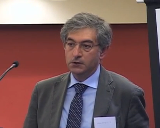
 045 8124930
045 8124930
